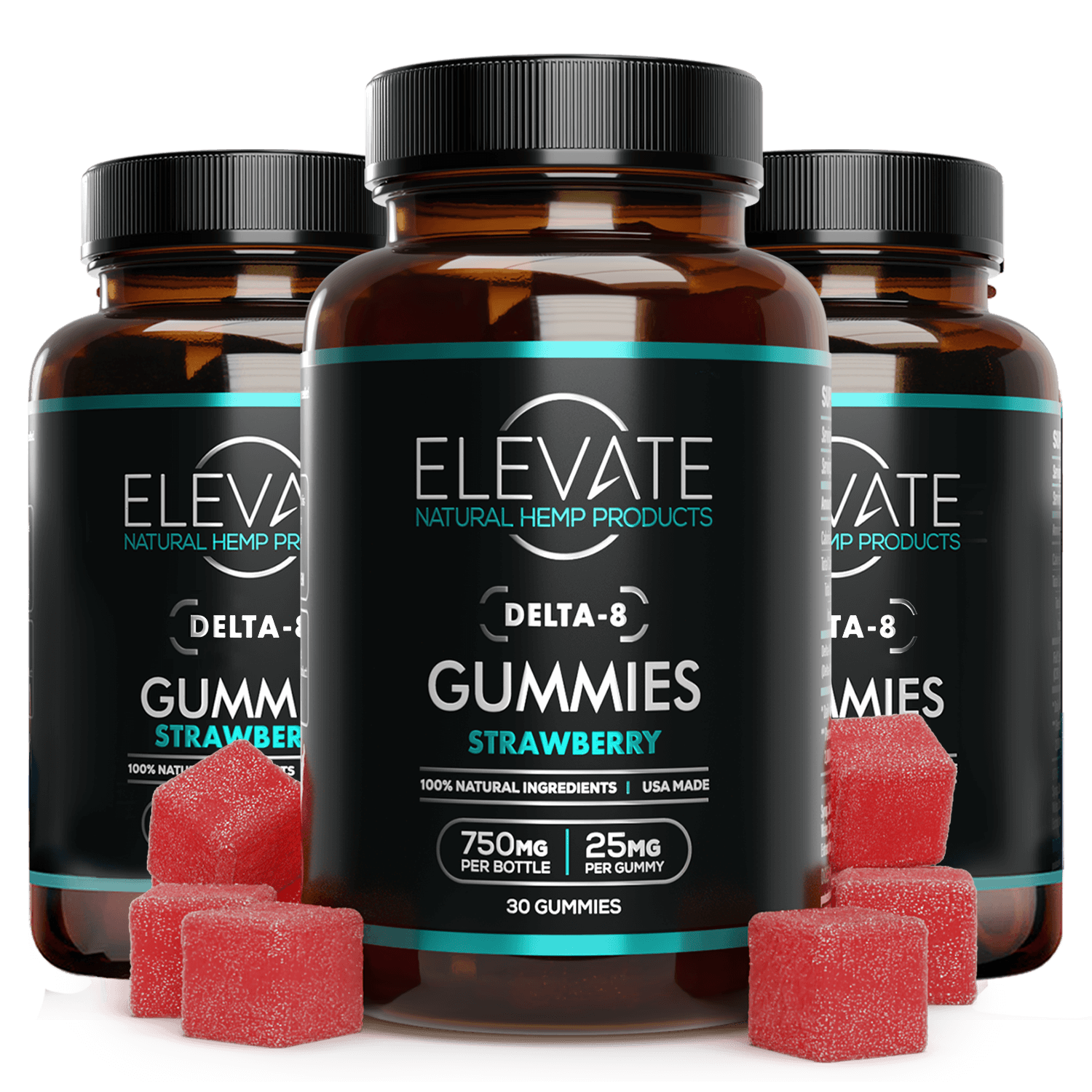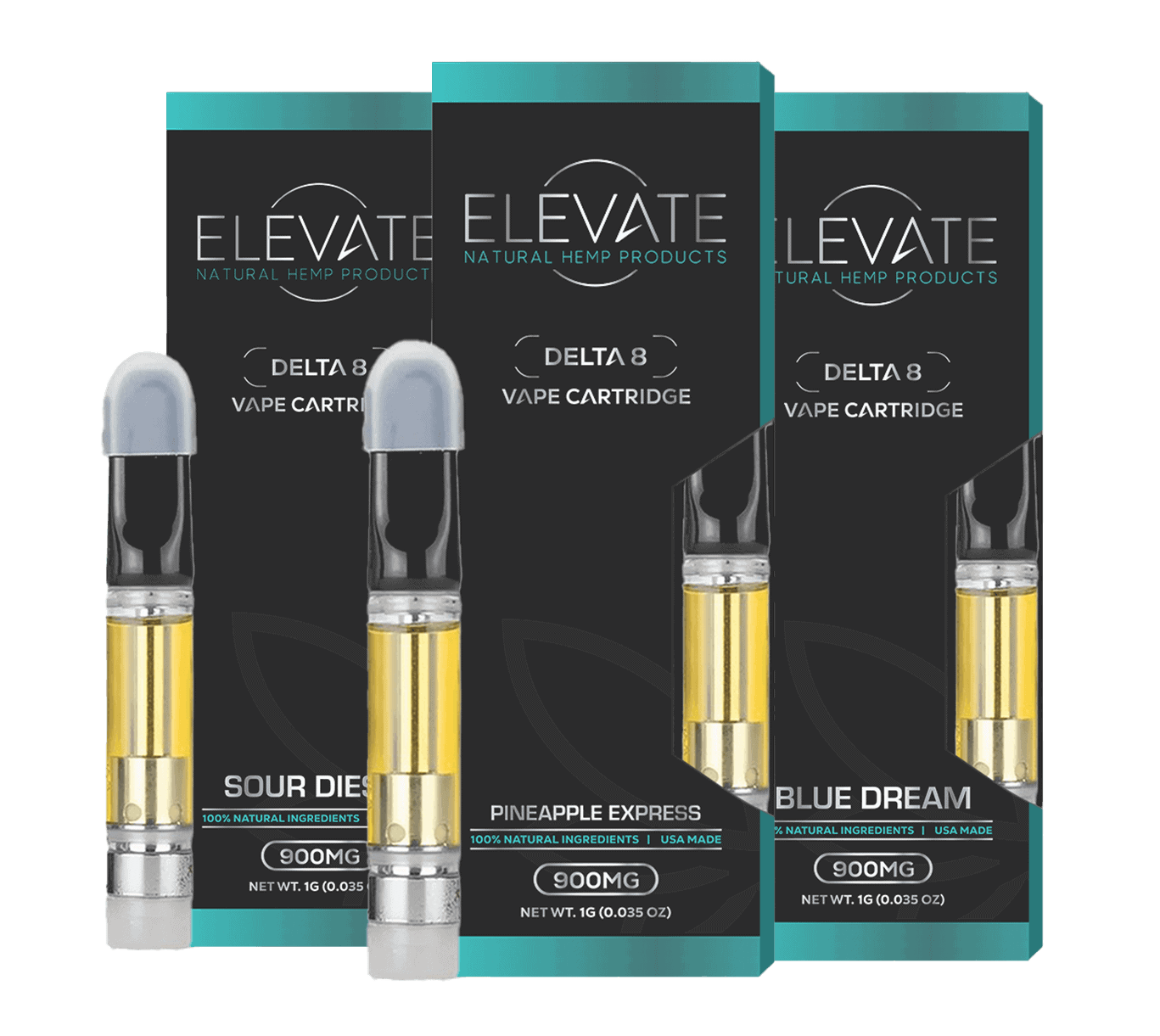The exploration of cannabis has brought to light a diverse array of cannabinoids, each with its own unique attributes. While delta-8 and delta-9 THC have dominated the conversation, THCA and THCP are now emerging as intriguing compounds worthy of attention.
THCA, known for its potential therapeutic benefits without psychoactive effects, and THCP, recognized for its extraordinary potency, are sparking curiosity among researchers and consumers alike. This blog will delve into the distinctive qualities of THCA and THCP, offering insights into their effects, benefits, and how they might complement each other in the world of cannabis innovation.
What Is THCP?
THCP, or tetrahydrocannabiphorol, is a naturally occurring cannabinoid found in cannabis that has recently come to light due to its potent effects. Structurally similar to THC, the primary psychoactive component in cannabis, THCP contains a longer alkyl side chain, which significantly enhances its affinity for CB1 receptors in the brain.
This molecular characteristic suggests that THCP could be substantially more potent than THC, potentially offering more pronounced therapeutic and psychoactive effects. Initial research indicates that THCP might intensify the typical effects of THC, such as euphoria, relaxation, and potential pain relief, but more studies are needed to fully understand its properties and implications for medical and recreational use.
What Is THCA?
THCA, or tetrahydrocannabinolic acid, non-psychoactive cannabinoids found primarily in raw and live cannabis. As the precursor to THC, THCA converts into THC through a process called decarboxylation, which occurs naturally during drying or when cannabis is heated during smoking, vaping, or cooking.
THCA is known for its potential therapeutic benefits, including anti-inflammatory, neuroprotective, and anti-proliferative properties. While it doesn't produce the "high" associated with THC, THCA is considered beneficial for its health-promoting qualities without the psychoactive effects, making it an area of interest for medical research and therapeutic applications.
THCP vs THCA: The Differences
When comparing THCP and THCA, several key differences emerge based on their chemical structure, psychoactivity, potential health benefits, and how they interact with the body. Here’s a detailed look at how these two cannabinoids differ:
Potential Benefits of THCP
THCP, or tetrahydrocannabiphorol, is an intriguing cannabinoid with potential health benefits that are only beginning to be explored due to its relatively recent discovery. Its potent interaction with the CB1 receptors in the brain suggests it may have several significant therapeutic applications:
Enhanced Psychoactive Effects
THCP is believed to be much more potent than THC due to its longer alkyl side chain, which allows it to bind more effectively with the CB1 receptors. This could lead to more pronounced effects from smaller quantities, potentially making it more effective for users who need stronger relief without consuming large amounts of cannabis.
Pain Management
Like THC, THCP may offer potent analgesic properties but at potentially lower doses. Its enhanced binding affinity might make it particularly useful in treating chronic pain where other cannabinoids are less effective.
Appetite Stimulation
THCP could potentially stimulate appetite more effectively than THC, which could benefit individuals suffering from conditions that reduce appetite, such as cancer, HIV/AIDS, and other chronic illnesses.
Anti-Inflammatory Effects
While most studies have not directly linked THCP with anti-inflammatory effects, its strong interaction with cannabinoid receptors suggests it could influence immune responses and potentially offer anti-inflammatory benefits.
Mental Health Benefits
Due to its potent effects on the central nervous system, THCP may also help regulate mood and reduce anxiety, offering potential benefits for individuals with mental health disorders such as depression and anxiety.
Neuroprotective Properties
Preliminary evidence suggests that cannabinoids that interact with the CB1 receptors could have neuroprotective effects. THCP may contribute to protecting neural cells against degeneration, although specific studies on THCP are needed.
Sleep Aid
The sedative effects of more potent cannabinoids suggest that THCP might help in managing sleep disorders, such as insomnia, by helping users fall asleep faster and potentially improving sleep quality.
Potential Benefits of THCA
THCA (Tetrahydrocannabinolic acid) has garnered interest in the medical community for its potential therapeutic benefits. Here’s a closer look at the potential health benefits of THCA:
Joint and Muscle Health
THCA has shown promising anti-inflammatory effects, which may help in managing conditions like arthritis and muscle pain. By reducing inflammation, THCA can help alleviate pain and improve mobility in affected individuals.
Neurodegenerative Diseases
Early research suggests that THCA may have neuroprotective properties, making it potentially useful in the treatment of neurodegenerative diseases such as Parkinson’s and Alzheimer’s. THCA may help protect brain cells from damage and support overall brain health.
Anti-Proliferative Properties
THCA has demonstrated potential anti-proliferative effects, which means it may help prevent the spread of cancer cells. While not a cure, it could potentially be used to support conventional cancer treatments in managing certain types of cancer.
Antiemetic Benefits
THCA can help reduce nausea and vomiting, making it beneficial for individuals undergoing treatments like chemotherapy. Additionally, it may help stimulate appetite in patients who struggle with eating due to illness or medication.
Antioxidant Properties
As an antioxidant, THCA helps combat oxidative stress, a factor in many chronic diseases and aging. By neutralizing harmful free radicals, THCA can contribute to better cellular health and vitality.
Potential for Treating Seizures
Some studies suggest that THCA may have anticonvulsant properties, which could make it useful in treating epilepsy and other conditions characterized by seizures. This aligns with the broader cannabis research that looks at various cannabinoids for seizure management.
Analgesic Effects
Though not as potent in psychoactive effects as THC, THCA may still play a role in pain management. Its anti-inflammatory and neuroprotective properties contribute to its potential as an analgesic, especially for chronic pain conditions.
Immune Modulation
THCA might also play a role in modulating the immune system, potentially helping in autoimmune conditions where the immune system attacks the body’s own tissues.
THCA vs THCP: How Are They Made?

THCA (tetrahydrocannabinolic acid) and THCP (tetrahydrocannabiphorol) are both cannabinoids derived from the cannabis plant, but they are produced and synthesized in distinctly different ways due to their unique chemical structures and properties.
THCA Production
THCA is naturally occurring and is the most abundant cannabinoid found in raw and live cannabis plants. It is produced as follows:
Biosynthesis in the Plant
Cannabis Growth: During the growth of raw cannabis plants, the plant synthesizes THCA from CBGA (cannabigerolic acid) through the action of the enzyme THCA synthase.
Accumulation: THCA accumulates in the trichomes of the raw cannabis plant, which are the glandular structures that cover the surface of the leaves and flowers.
Extraction
Non-Decarboxylation Process: When cannabis is harvested and processed without heating, THCA remains in its acidic form. This can be extracted using various methods such as cold-water extraction, oil infusion, or alcohol extraction, which do not involve heat to ensure THCA does not convert to THC.
THCP Production
THCP is a recently discovered cannabinoid that also occurs naturally in cannabis, but in much lower concentrations compared to THCA. Its production involves:
Natural Occurrence
Trace Amounts: THCP is found in trace amounts in certain cannabis strains. Its discovery involved advanced spectroscopy and chromatography techniques to identify and isolate it.
Synthesis and Extraction
Extraction Challenges: Due to its rarity, the natural extraction of THCP is not as feasible as THCA. Researchers have been able to identify and synthesize THCP in the laboratory to study its effects more effectively.
Potential for Biosynthesis: Similar to other cannabinoids, THCP likely arises from a precursor like CBG (cannabigerol), but with a unique enzymatic modification that extends its alkyl side chain, which enhances its potency and affinity for cannabinoid receptors.
Key Differences in Production
Abundance and Availability: THCA is abundant and easily extractable from raw cannabis, making it widely available for use in medical and health products. In contrast, THCP is found in much smaller quantities and often requires synthetic enhancement or specialized extraction techniques for study and potential use.
Chemical Stability: THCA easily converts to THC when exposed to heat (decarboxylation), whereas the stability of THCP and its conversion pathways are less understood due to its recent discovery and limited research.
Final Thoughts on THCP vs THCA
As we continue to peel back the layers of cannabis's complex biochemical landscape, the discovery and study of cannabinoids like THCA and THCP not only expand our scientific knowledge but also enhance our ability to tailor cannabinoid-based therapies to meet diverse health needs.
The journey into the cannabis world is far from complete, and each new finding brings us closer to fully realizing the plant's therapeutic potential. With ongoing studies and evolving insights, the future of cannabis as a cornerstone of alternative medicine looks both promising and infinitely intriguing.




















